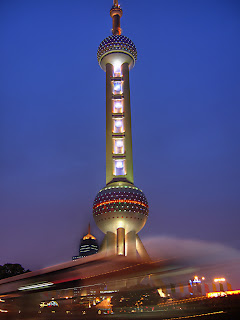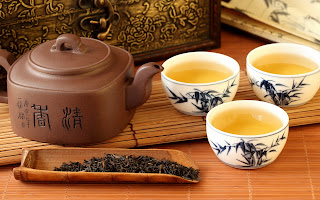Management Style
 Management
styles in China are widely influenced by the Confucian approach. In
this Confucian philosophy, it is said that all relationships are
considered to be dissimilar or in other words unequal. These ethical behaviors are also highly respected and obeyed by the citizens of
China. In conjunction with this, the senior person in an organization
should consequently receive respect from the younger co-workers. With
this, the management styles in China works in a way where the senior
manager will give instructions to their colleagues down the line. The
younger co-workers are likely not expected to change or question the
decisions of the superiors as this will show disregard and also be
the direct loss of “Minanzhi”/ “Lian”. “Minanzhi”/ “Lian”
is known as “face” which means, pride and dignity of a person in
the community due to his or her social standings. Prior to this, the
manager in an organisation is seen as a highly respected individual
who expects to receive support and honor from his or her colleagues.
In returns, the manager is also likely to consider the well-being of
their co-workers to build a harmonious working atmosphere.
Management
styles in China are widely influenced by the Confucian approach. In
this Confucian philosophy, it is said that all relationships are
considered to be dissimilar or in other words unequal. These ethical behaviors are also highly respected and obeyed by the citizens of
China. In conjunction with this, the senior person in an organization
should consequently receive respect from the younger co-workers. With
this, the management styles in China works in a way where the senior
manager will give instructions to their colleagues down the line. The
younger co-workers are likely not expected to change or question the
decisions of the superiors as this will show disregard and also be
the direct loss of “Minanzhi”/ “Lian”. “Minanzhi”/ “Lian”
is known as “face” which means, pride and dignity of a person in
the community due to his or her social standings. Prior to this, the
manager in an organisation is seen as a highly respected individual
who expects to receive support and honor from his or her colleagues.
In returns, the manager is also likely to consider the well-being of
their co-workers to build a harmonious working atmosphere.
Team Working
 The Chinese in an organisation, usually work in teams where consensus
decision making is always practiced This means that, the team
members will come up with a mutual agreement and this will
automatically result in an effective product. The downsides of this
group orientation is that the structure and organisation in China is
highly hierarchical according to the Confucian philosophy, where the
seniors in an organisation takes lead gives orders to their
colleagues. This practice results in a lack of individual enthusiasm
to do or to project some of their thoughts and ideas as that would be
viewed negatively. In a culture where only the boss is allowed to
voice out, people tend to only follow instruction. Therefore this
might bring personal difficulties and this makes it unable to bring
out the best of them.
The Chinese in an organisation, usually work in teams where consensus
decision making is always practiced This means that, the team
members will come up with a mutual agreement and this will
automatically result in an effective product. The downsides of this
group orientation is that the structure and organisation in China is
highly hierarchical according to the Confucian philosophy, where the
seniors in an organisation takes lead gives orders to their
colleagues. This practice results in a lack of individual enthusiasm
to do or to project some of their thoughts and ideas as that would be
viewed negatively. In a culture where only the boss is allowed to
voice out, people tend to only follow instruction. Therefore this
might bring personal difficulties and this makes it unable to bring
out the best of them.
"Alone We Can Do So
Little,
Together We Can Do So Much"
-Nolen Bushnell-
Business Meetings
It is very important for you to show respect to other
members/workers when you are in a meeting through this you can portray your
honorable side and in turn you will be respected. In China, when you are in a
meeting respect should be shown to people of all age without taking into
account about the seniority, traditions of China and the company. Moreover, you
must be attentive even if the key person's English is not good, you should also
stand up when a senior member enters or when an honorable person enters.
Business cards are always exchanged on the first meeting to get more new
contacts. It is best to have your card printed in Chinese on the reverse and
always offer it Chinese-side up. Handshaking is the norm but a Chinese
handshake will tend to be light and lingering.
Communication in Business
The most common dialect spoken in
China is Mandarin. If you are going to speak in English make sure there is a
translator to translate what you speak. You have to be very careful when you
are communicating during the meeting because there is chance for
misunderstanding and mistranslated. The Chinese use a very little of visual
body language. When you are going to deliver a bad news it is the best to have
an intermediary who can speak softly and deliver the bad news indirectly and
preserve a good relationship.
Translation of English - Mandarin
"Behind the
need to communicate is the need to share.
Behind the need to
share is the
need to understood"
-Lisa M. Hayes-
Gift Giving Etiquette
A
beautiful basket of food is a wonderful gift because the Chinese likes food. Avoid giving sharp things such as knives because to them it means a
breaking relationship. Besides, gifts such as straw sandals, handkerchiefs, flowers or clocks should be
avoided because it is associated with death. Moreover, gifts that are associated with number 4 and wrap with blue, black or
white paper is considered unlucky. Present the gift with two hands and do not immediately open the gift
upon receiving it.
Business Dress Code

 In Chinese business
culture, men use to wear suits and ties to meetings. It is important
to wear attire such as black, white or beige because bright colours
are considered as inappropriate for a meeting. For formal events,
wear suits and ties, but not tuxedos as tuxedos are not a part of
Chinese culture. On
the other
hand,
Woman
should wear conservative suits. Do not wear anything too
revealing and women also must try keep to the conservative colours
like men. For both men and women jeans are typically worn
for casual activities.
In Chinese business
culture, men use to wear suits and ties to meetings. It is important
to wear attire such as black, white or beige because bright colours
are considered as inappropriate for a meeting. For formal events,
wear suits and ties, but not tuxedos as tuxedos are not a part of
Chinese culture. On
the other
hand,
Woman
should wear conservative suits. Do not wear anything too
revealing and women also must try keep to the conservative colours
like men. For both men and women jeans are typically worn
for casual activities.
Dining Etiquette
The Chinese prefer to entertain in public places rather than in their homes, especially when entertaining foreigners. During dining it is advisable to talk about any business related. It is not advisable to bring families but is common for businessmen to bring secretaries. You should also arrive on time. Remove your shoes before entering the house. Table manners are expected. Besides, you should also wait to be seated . The guest of honour will be given a seat facing the door. Wait for the host to begin eating than you can eat. Prepared to be toasting (gan bei) at all time and the first toast must to be offered by the host. Make sure to toast others first before drinking it is considered rude and if you are been toasted sip the drink in reply. Slurping or belching sounds indicates they are enjoying their food and it is not considered rude.Do not leave your bowl empty to show honour of the host generosity.
Women In Business
 Basically, men and women
have the same rights in the workplace and the party has promoted this sense of
equality over long time ago. However, traditional Confucian thinking does not
sit easily with this notion of gender equality and it is somewhat ironic that
the liberalization policies of the last decade might have reversed many of the
advances made by women in Chinese society under the previous hard-line regimes.
Great respect will be poured over foreign businesswomen. Within a delegation,
the Chinese defer to male colleagues regardless of the actual seniority of the
western party - male will naturally be the decision maker according to Chinese
assumption. As for now, it is more and more common to place women in reasonably
senior roles in large Chinese organizations especially in the cities which are
larger and more modernized. The women in
China are highly successful in their education and also actively managing their
career life.
Basically, men and women
have the same rights in the workplace and the party has promoted this sense of
equality over long time ago. However, traditional Confucian thinking does not
sit easily with this notion of gender equality and it is somewhat ironic that
the liberalization policies of the last decade might have reversed many of the
advances made by women in Chinese society under the previous hard-line regimes.
Great respect will be poured over foreign businesswomen. Within a delegation,
the Chinese defer to male colleagues regardless of the actual seniority of the
western party - male will naturally be the decision maker according to Chinese
assumption. As for now, it is more and more common to place women in reasonably
senior roles in large Chinese organizations especially in the cities which are
larger and more modernized. The women in
China are highly successful in their education and also actively managing their
career life.
"women are but the toys which amuse our lighter hours-ambition is the serious business of life"
-Walter Scott-
A Successful Women






+gg.jpg)




















